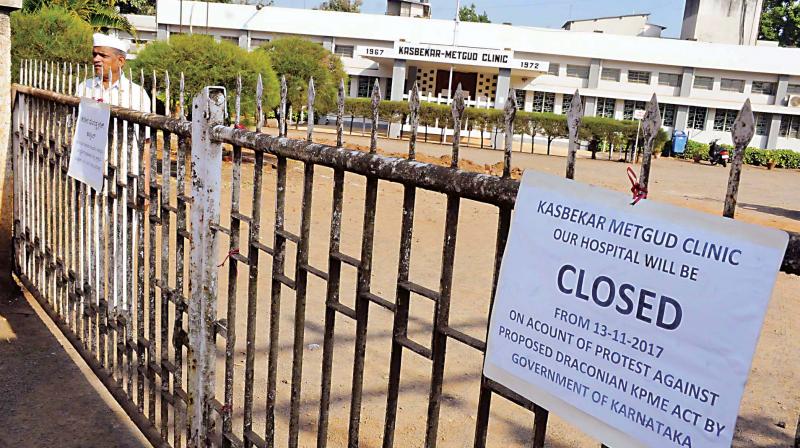Guest column: Healthcare services need transparent pricing'
The government wants to fix the price because it has noticed that hospitals charge different rates for the same procedure.

The main issues that the Karnataka private doctors have raised against the proposed amendment are that the government should not fix prices of procedures and it should not regulate the doctors. So why is the government taking these ‘draconian’ steps and displeasing the medical fraternity?
The government wants to fix the price because it has noticed that hospitals charge different rates for the same procedure. While we can understand a difference in prices for a caesarean section between a small 25-bed nursing home and a 250-bed high-end hospital, but why should five nursing homes (of similar capacity and facility) have five different rates ranging from Rs 10,000 to Rs 80,000?
The government wants to bring in transparency in the pricing of healthcare services so that patients know the actual cost of a caesarean section or an angioplasty. They can then decide which hospital to choose, the one that does angioplasty for Rs 75,000 or the one that does for Rs 3 lakh. So this step is a way to protect the citizens of Karnataka. The amendment also recognizes that the rates will be fixed based on the category of hospitals and it will not be a one size fits all.
The government also recognizes that costs may change due to unexpected complications and so they have allowed hospitals and doctors to explain the circumstances and charge more with the consent of the patient. So fixing prices is a good way of improving the transparency in the medical services and the doctors need to support it for the sake of the profession.
The private doctors state that the medical profession should not be regulated. Most countries in the world have various mechanisms to regulate a profession, be it the medical profession or the accounting profession. Usually, it is through self-regulation, e.g. in the UK, the medical council is the one that regulates the doctors, ensuring that they have the capacity to practice, they practice ethically and the patient is not harmed.
Unfortunately in India our Medical Council takes up more time inspecting medical colleges and less with ensuring ethical and rational medical services. This failure is the reason that the government has to step in and introduce acts like the KPME.
There are many other states that have introduced similar acts, because of the same problem; that there is a vacuum in terms of ensuring the safety of the patients. In the current amendment, the government has replaced the Inspection committee with a grievance redressal committee and has spelt out the members of this committee.
This will provide a platform for the patients to air their grievances in a legitimate manner rather than using force against health professionals. One of the objections of the doctors is to the constituents of this committee. They feel that this committee is not qualified enough to take decisions on medical matters.
This may be correct and it would help if the committee includes a couple more medical fraternity, e.g. the President of the District IMA to explain the technical components of the case. The role of this committee should be more of a platform for reconciliation and arbitration rather than a body for filing suits. Hence penalties and imprisonment of doctors need to be removed from this amendment so that a more conducive atmosphere can be developed.
In this period of strike and counter strike, what is required are discussion and negotiations while keeping the interests of the patient at the centre. This is the only way that Karnataka can come out of this mess and ensure that all stakeholders (patients, government and private doctors) are satisfied.
The author is Director, Institute of Public Health.

